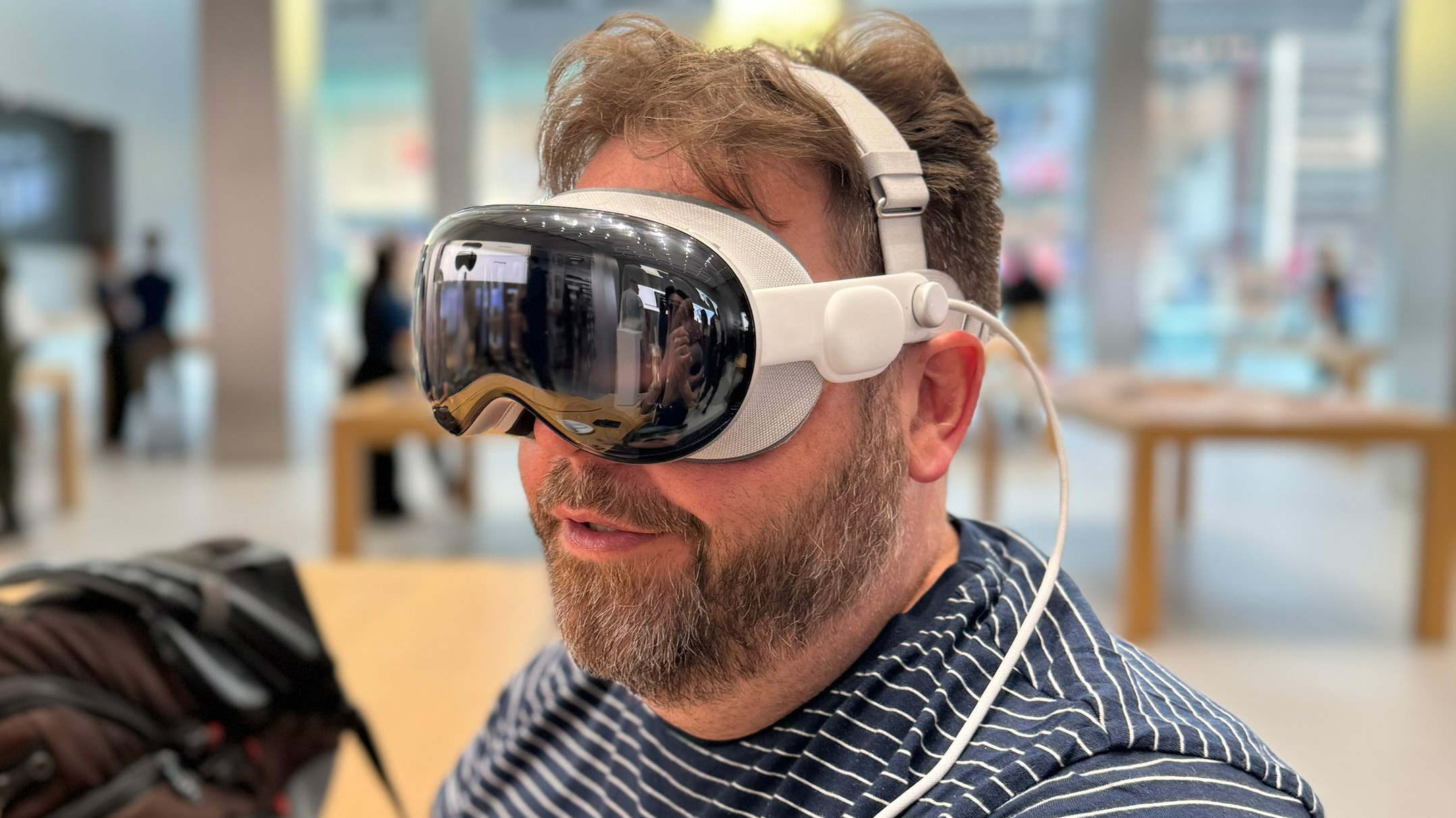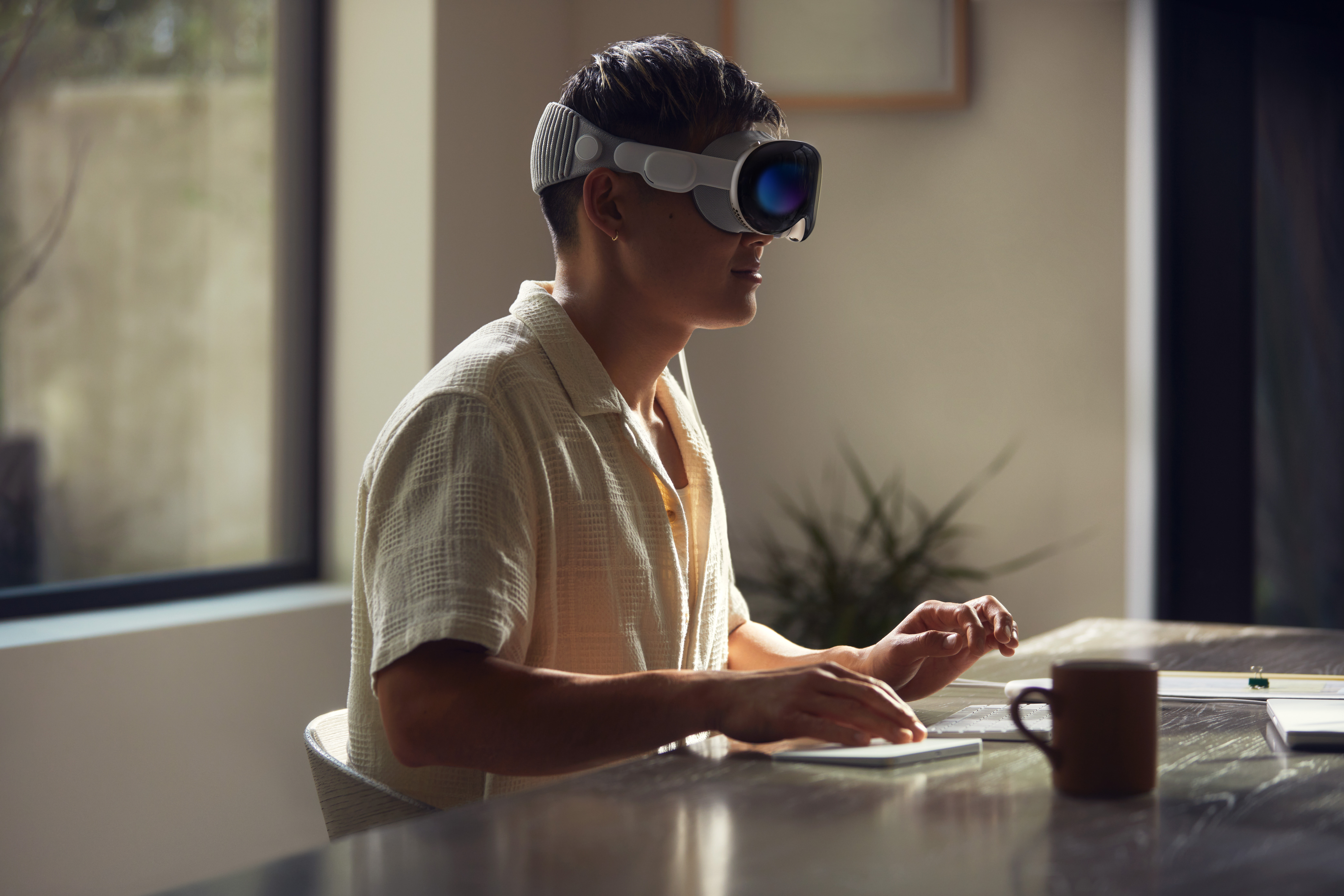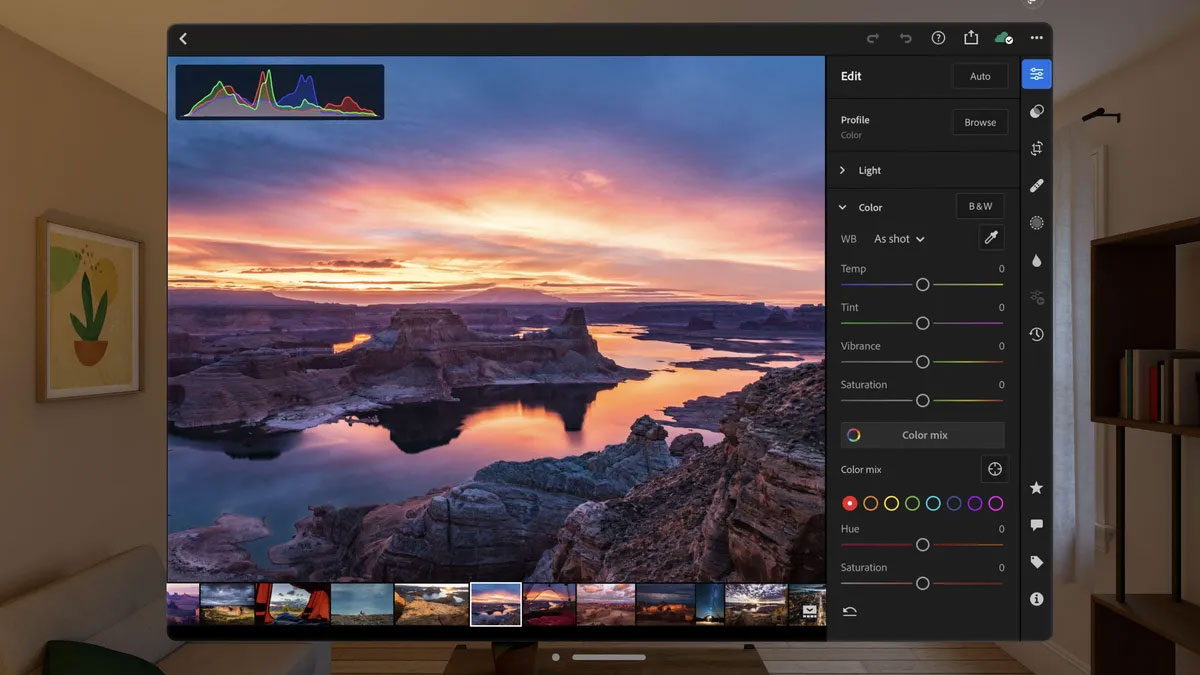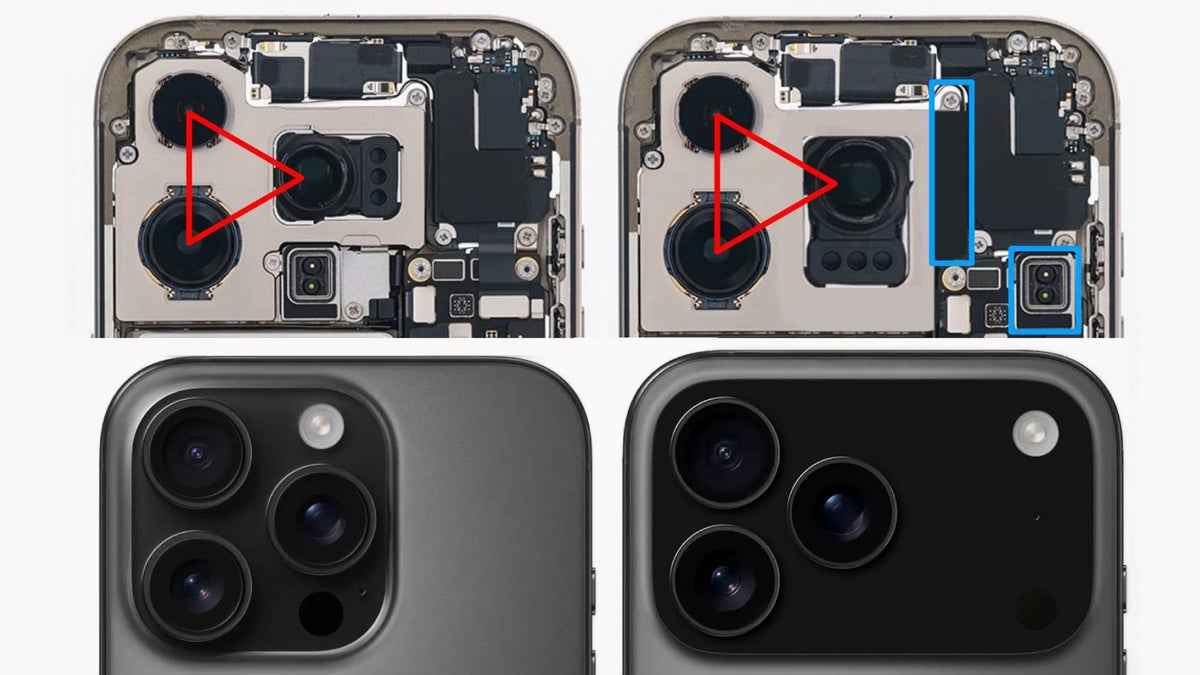"If anything, the problem with the Apple Vision Pro is that it's too cheap!"
You might call me crazy, but this really might be the future of imaging if only the tech was perfected.

Everyone says the Apple Vision Pro is let down by being too expensive. They might try, it if only it cost less, but there is no way that they'd put up the cash for something so insanely expensive. After all, can a piece of tech that isolates you from everyone else possibly be worth $3000 more than the most obviously cited competition – the Meta Quest 3?
Well, I've tried both and I can tell you that one might be the future of both imaging and computing the other is a nearly useless gimmick designed to con you into thinking VR is the future and, more specifically, that you should let Facebook, sorry, Meta control you.
When you put on the Apple Vision Pro, you are NOT transported into another world. That's the brilliance of it. The cameras in the front and the screens in front of your eyes do such a good job of relaying the actual world before you that – at least at first – it feels like you're looking through the glasses.

Of course a couple of things stop that being true. The fact that an operating system is overlaying icons is the big giveaway, though such is the quality of Apple's augmented reality that even these have shadows in the 'real' world. The other clues are more visible to photographers. The cameras – and that is plural – in the headset do a good job of recreating stereoscopic vision but they have to make allowances for light and dark environments.
Now this could be the future of cameras. It really could. Think about it. No more peaking through viewfinders or worrying about dials. You're (more or less) literally the camera.
The Vision Pro does let you take advantage of all the tech to capture what it calls 'spatial video' and, when you play it back while wearing the device, you can certainly perceive the three dimensions. You can capture 'spatial video' with the iPhone 15 Pro series and, probably, all of the iPhone 16 range too, but the cameras are closer together on these devices so the effect is slightly less impressive.

The Vision Pro is also home to a spectacular "cinema" system, which lets you watch content. You can decide whether you want to submerge yourself deep inside a virtual cinema, or play in a window. In fact the first scripted video shot specifically for Apple Immersive Video will come out in a few weeks and it's called 'Submerged'.
Get the Digital Camera World Newsletter
The best camera deals, reviews, product advice, and unmissable photography news, direct to your inbox!
Guess what though. It wasn't shot entirely using Apple Vision Pros.
As we reported back at the WWDC, Apple and their content partners have been using some of the Canon 3D lenses we saw to capture 180-degree video. (It's a great concept, by the way, for storytelling – it's immersive, but it still means the director can keep the viewer looking roughly where they want and have somewhere for the crew to stand).
Which brings me to my point about the price of the Vision Pro.
What seems a phenomenal price on first inspection for the 'future of computing' or 'the first spatial computer' or whatever term sticks may not in fact be enough.
For one thing, much better cameras would be nice. At the moment the cameras driving the augmented reality experience are adequate for that task, but it would be great if they were better able to capture real quality – at least up to iPhone Pro standards as a bare minimum.
Over time resolution will be a sticking point. The Vision Pro has incredible resolution. It is nearly 12 megapixels – 3,660 × 3,200 pixels per eye – almost enough to trick you into thinking you're there, but over time you do start to worry that your eyes aren't as sharp as they were.
At least with more straightforward tech like the Meta Quest 3 (4.5 megapixels) or glasses like the NXTWEAR S, but for imaging, when we start to feel the need to control focus, we'll want to be sure.
How much will higher-resolution displays (and the tech to drive them) cost? I'll bet even more than the Apple Vision Pro!
Oh, and since I'm talking Apple, "One more thing." The walled garden. At the moment, all apps need to be purchased through the App store because the OS is similar to the iPad one – indeed you can use iPad apps.
Now while I agree with Apple's privacy-diven approach – especially in a device which has eye-tracking tech – and understand the desire for a walled-garden – proper software comes on a more open operating system like Mac OS or Windows (and that, too, can come with a need to increase the hardware price because there isn't a cashflow from the app store to support the seller).
That's a lot of roadblocks, but a lot of potential. Now excuse me while I check the going rate for a used kidney...

With over 20 years of expertise as a tech journalist, Adam brings a wealth of knowledge across a vast number of product categories, including timelapse cameras, home security cameras, NVR cameras, photography books, webcams, 3D printers and 3D scanners, borescopes, radar detectors… and, above all, drones.
Adam is our resident expert on all aspects of camera drones and drone photography, from buying guides on the best choices for aerial photographers of all ability levels to the latest rules and regulations on piloting drones.
He is the author of a number of books including The Complete Guide to Drones, The Smart Smart Home Handbook, 101 Tips for DSLR Video and The Drone Pilot's Handbook.
